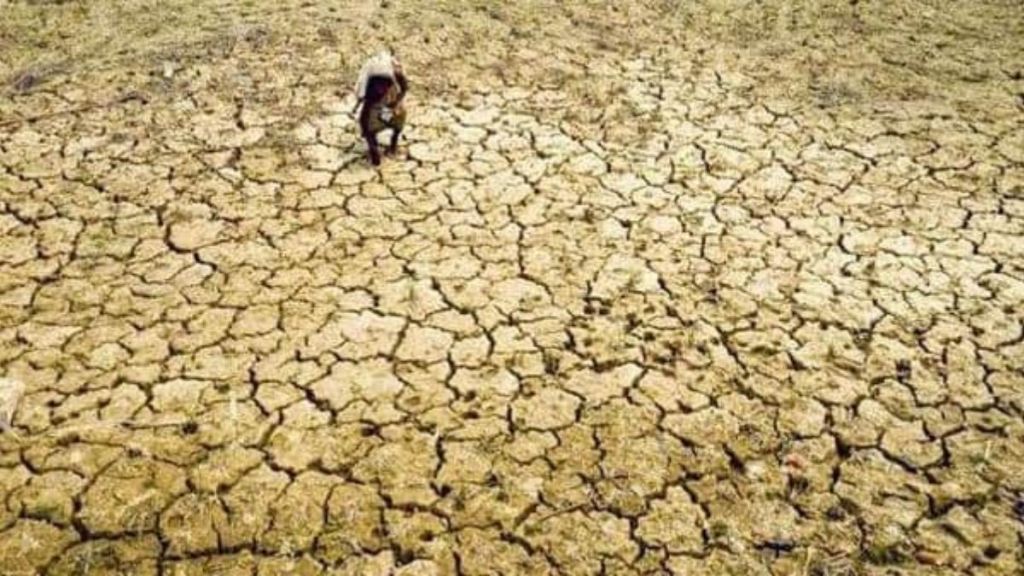By Anadi
Based on the ERA5 data sourced from the EU-funded Copernicus Climate Change Service (C3S), the initial three weeks of July have exhibited unprecedented warmth, establishing a historical milestone as the warmest consecutive three-week period on record. Concurrently, the month appears poised to ascend to the status of the hottest July and the hottest month ever documented. These elevated temperatures have been concomitant with the occurrence of heatwaves in extensive regions across North America, Asia, and Europe, which, in tandem with wildfires prevalent in countries such as Canada and Greece, have imparted substantial repercussions on human health, environmental integrity, and economic systems. Climate change functions as a “threat multiplier” intensifying pre-existing security vulnerabilities.
The crux of the danger lies not in climate change alone, but in its intricate interplay with current security contexts. Consequently, climate change introduces a spectrum of direct and indirect threats to human, national, and international security landscapes. Climate change is frequently interpreted as a phenomenon that intensifies the impacts of persistent poverty, inadequacies in resource management and conflict resolution institutions, historical divisions, mutual distrust among communities and nations, and limited access to vital information or resources, thereby exacerbating existing threats.
Moreover, the security threats arising from climate change intertwine—water scarcity impacts food security, while food security might heighten social turbulence and aggression. It is imperative to focus more closely on how these interconnections influence specific themes or geographical regions.
According to the conventional perspective on security, climate change possesses the capacity to instigate violent conflicts and exacerbate pre-existing ones. For example, climate change may engender violent conflicts between countries vying for scarce resources. In fact, Environmental crimes have already emerged as the fourth largest and expanding category of global criminal activities, further hastening the environmental predicament by unsustainable depletion of natural resources. Undoubtedly, a firmly established association exists between the environment and armed conflict, evidenced by the role of resource competition (involving commodities like diamonds, timber, oil, water, and even narcotics) as a driving force behind violence in diverse regions such as Kuwait, Colombia, and Afghanistan. Furthermore, the financing of insurgencies in countries like Angola and Sierra Leone has been facilitated through the exploitation and trade of natural resources.
Moreover, within the context of traditional security considerations, climate change engenders a profound existential crisis for low-lying small islands, jeopardizing their very existence and survival due to the escalating sea-level rise. It also has the potential to heighten north-south tensions concerning climate change measures and responsibilities. The cumulative effect of these climate-induced insecurities contributes to the emergence of domestic political challenges and societal instabilities.
Further, the dynamic shifts in climate hold the potential to exacerbate health concerns and trigger food insecurity. Particularly, in Sub-Saharan Africa, South Asia, and Southeast Asia, regions heavily populated by economically disadvantaged and vulnerable agricultural families, approximately 80% of the global population faces heightened risks of crop failures and hunger attributable to the impacts of climate change.
Climate change is presently exerting tangible effects on public health through a diverse range of pathways, including more frequent occurrences of extreme weather events such as heatwaves, storms, and floods, disruptions in food systems, a rise in zoonotic diseases and illnesses transmitted through food, water, and vectors, as well as mental health issues. According to the Intergovernmental Panel on Climate Change (IPCC), maintaining global temperature rise within the 1.5°C threshold is crucial to prevent severe health impacts and avert millions of fatalities attributable to the consequences of climate change.
Moreover, climate change is anticipated to influence human migration, both internally and across international borders, spanning short-term and long-term periods, due to its effects on people’s livelihoods, health, and the viability of settlements. The emergence of large-scale unplanned migrations may result in social disruptions, characterized by heightened pressure on public goods and services, intensified competition for resources, and challenges related to border control. In fact, the Global Report on Internal Displacement 2022 indicates that a significant proportion of the yearly internal displacement in South Asia is attributable to natural disasters.
It can be understood that climate change, if left unchecked, has the potential to pose a threat to both “state security” as well as “human security”. For instance, in the worst scenario, it can jeopardise the existence of an entire nation, as is the case with the small island nations in the Pacific and Indian oceans, if sea level continues to rise. Consequently, the intricate interplay between climate change and its security implications is undeniable. This synthesis underscores the urgency of recognizing climate change as a fundamental determinant of global security paradigms.
The escalating environmental pressures, resource scarcity, and displacement risks induced by climate change pose multifaceted challenges to socio-political stability. Consequently, proactive and cooperative efforts at local, national, and international levels are imperative to mitigate the security ramifications of climate change. Effective policies, sustained research, and diplomatic collaborations are pivotal to fostering resilience and averting potential conflicts in a dynamically changing world shaped by climatic shifts.
The author is Research Associate, Centre for Air Power Studies, India.
Disclaimer: Views expressed are personal and do not reflect the official position or policy of Financial Express Online. Reproducing this content without permission is prohibited.


